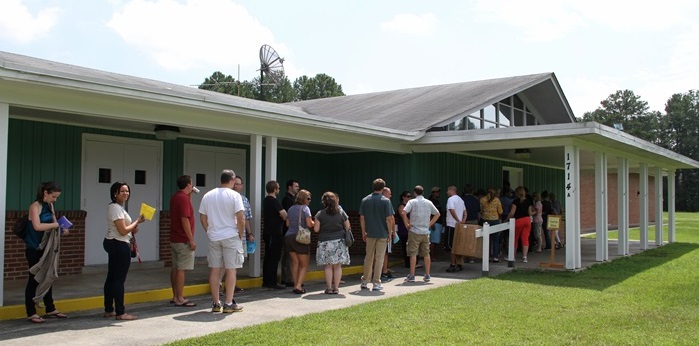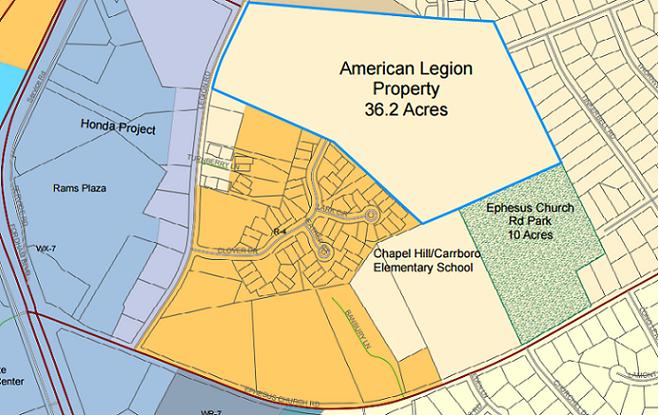Town officials in Chapel Hill are mulling over the most appropriate approval process for a plan that would put an apartment complex on West Rosemary Street.
That complex is intended by local developer Larry Short to be known as Amity Station, but the Chapel Hill Town Council has yet to grant him permission to build.
Council members were briefed last week by Ben Hitchings, the municipal planning director, on the ways in which consent for Amity Station could be given.
According to Hitchings, the best course of action may entail the formulation of a development agreement between Short and the municipal government.
“Some of the drawbacks are that it can be unpredictable, and, as a result, can potentially require more time and resources,” he explained.
“However, those are drawbacks that can be mitigated through defining a very structured process for conducting a development agreement, and, so, as a result, we think the drawbacks of the development agreement process can be addressed and the benefits accentuated.”
Council Member Nancy Oates objected to that recommendation based on the precedent that it could set for prospective developers of West Rosemary Street.
“It raises the concern that this is a way to do an end run around the Rosemary Street guidelines, the community input,” she noted.
“We have essentially seen the same plan three times and we’ve been very clear about, ‘This is why this doesn’t work,’ or, ‘This doesn’t work,’ or, ‘We want to see more of this,’ and then, when it comes back, we see the exact same thing.”
Directives for development along West Rosemary Street were ratified by council members earlier this year in an effort to promote conscientious construction.
Amity Station may not adhere to those directives according to P.H. Craig, a local resident and real estate appraiser who owns property near its proposed location.
“We’re talking about a big project here that’s going to go way back into the residential area, and, so far, the developers have not seen fit to talk about getting back there to fight a fire, to get back there to correct a hundred-year-old layout,” he reported.
Concerns notwithstanding, Council Member Michael Parker claimed that development agreements may allow Short and the town to find common ground.
“In general, I have been an advocate for development agreements; I think this is a really good case for one, whereas Ben said there are some big rocks that we have to work through, things like building height and mass and affordable housing and who gets to live there and those kinds of things,” he listed.
Council members voted to pursue the development agreement process with Short by a 7-1 margin, with the dissenting vote having been cast by Oates.
That process is expected to continue as the town manager gathers input from community stakeholders and prepares a presentation to be made later this year.







Looks like yet another opportunity for a greedy developer to screw up what used to be a nice little town. Will they have enough on-site parking for ALL tenants and their guests ? I doubt it. If the town board approves this they should all be ashamed.